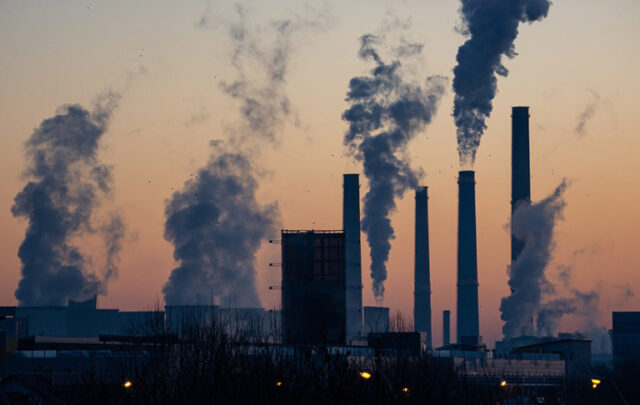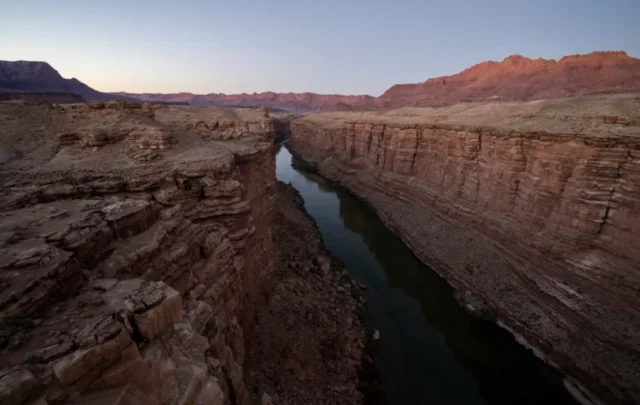(Note: Dr. Hall’s presentation was given on Aug. 2, 2012. Presentation slides are available for download. The video recording of the webinar is also available.)
This week in the ASPO-USA Webinar series, Dr. Charles A.S. Hall presented his talk “Peak Oil, Declining EROI and the New Energy-Economic Reality. Dr. Hall was trained as a systems ecologist by Howard Odum at the University of North Carolina. Today he is ESF Foundation Distinguished Professor at State University of New York in the College of Environmental Science & Forestry. He is also the author of Energy and the Wealth of Nations: Understanding the Biophysical Economy.
Dr. Hall’s lecture opened by reflecting on the importance of energy to economies, demonstrating how ecology relates to our human systems, and presenting the dirty secret to wealth production: it requires more energy.

However, a problem exists because the growth rates of many economies are declining. But why? Dr. Hall presents his hypothesis that declining non-renewable natural resource input leads to declining economic output (GDP), which then leads to declining societal material well-being.

Dr. Hall goes on to explain the basic Peak Oil story in the United States with M. King Hubbert’s prediction of US Peak Oil for the lower-48 for 1970. How do we know oil production will decline? Simply because “we use 2-3 barrels for every barrel we discover,” Hall says.

“The important thing (so far) – economically – is NOT Peak Oil but a cessation of growth in oil and energy,” Hall continues.
Next he describes the energy return on invested (EROI) concept: the energy delivered to society divided by the energy put into that activity. In countries around the world, Hall and his students have found a declining EROI for oil production.
“When the EROI goes down, price goes up,” Hall notes. And he reminds the audience that every recession since 1970 has been preceded by a spike in the price of oil.

Hall presents the “cheese-slicer” diagram that shows that the economy must extract energy, use it to produce GDP, which is then divided into two categories: investment and consumption. We invest in energy acquisition, infrastructure maintenance, and discretionary investments. Consumption is split into staples and discretionary. The charts begin in 1949, and if the EROI continues to decline as Hall suggests, by 2030 a much larger percentage of investments must be devoted to energy acquisition, greatly challenging both infrastructure investment and discretionary investment.


Hall concludes his talk with five key points:
1. Economic growth in the past has been highly dependent upon growth in fossil fuels.
2. We cannot assume this growth will continue.
3. While technology is important and continuing, it appears that depletion is trumping technology as indicated by declining production and EROI.
4. The U.K. (and other countries) is likely to depend increasingly on the EROI of imported fuels.
5. Our existing economic approaches and theories are completely inadequate for understanding this situation.
D. Ray Long serves as the Assistant Director for ASPO-USA and resides in Washington D.C. He received his Bachelors of Science from Michigan State University and a Masters in Engineering studying alternative energy at Wayne State University. Previously he served as a consultant focusing on residential appliance energy standards for the U.S. Department of Energy’s Energy Star program.
Charles A.S. Hall is ESF Foundation Distinguished Professor at State University of New York in the College of Environmental Science & Forestry and a member of ASPO-USA’s Advisory Board. Hall describes himself primarily as a systems ecologist in the field of systems ecology with strong interests in biophysical economics, and the relation of energy to society. Dr. Hall was trained as a systems ecologist by Howard Odum at the University of North Carolina. Since then he has had a diverse career at Brookhaven Laboratory, The Ecosystems Center at the Marine Biological Laboratory, Woods Hole, Cornell University, University of Montana and, for the last 20 years, at the State University of New York College of Environmental Science and Forestry (SUNY ESF).





